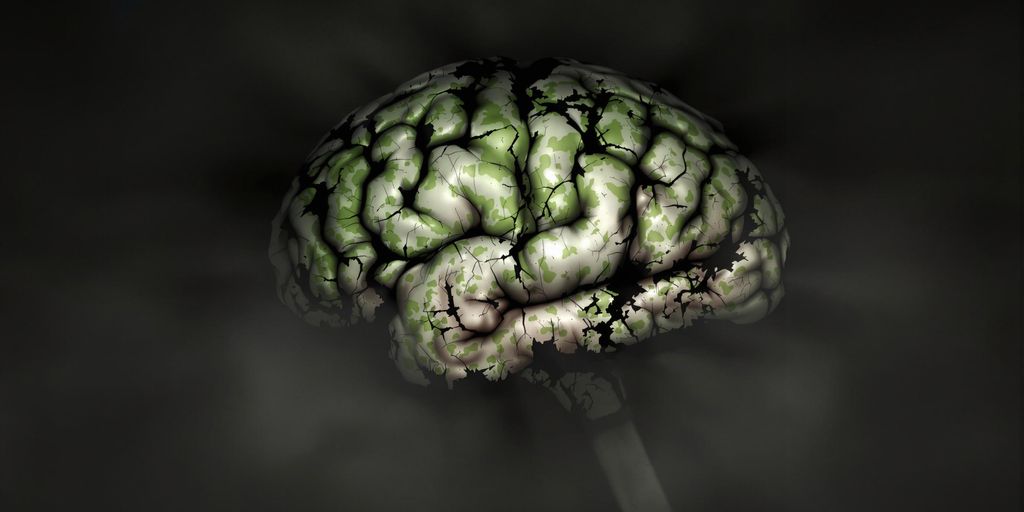Paragraph
Brain rot is a term that’s been popping up more frequently lately, especially in discussions about how we consume content online. It describes a state where excessive exposure to low-quality or trivial media negatively impacts our mental sharpness. As we dive into this concept, we’ll explore its origins, meaning, and how it affects us in today’s digital landscape.
Key Takeaways
- Brain rot combines the concepts of mental decline and the decay of intellectual engagement.
- The term gained traction in 2023 and refers to the effects of consuming low-quality online content.
- Common sources of brain rot include social media, addictive games, and trivial entertainment.
- Experts debate whether brain rot is a real phenomenon, linking it to cognitive issues from too much screen time.
- Preventing brain rot involves mindful media consumption and setting limits on digital device usage.
Origins Of Brain Rot
Historical Context
So, where did this whole “brain rot” thing come from? It’s not exactly a new term, surprisingly. While it’s become super popular recently, especially with all the online slang, it’s been kicking around for a while. You can find instances of it dating way back. Think about it – people have probably been complaining about stuff rotting their brains since, well, brains existed. It’s just that now we have TikTok and endless scrolling to blame.
Evolution Of The Term
The meaning of “brain rot” has shifted a bit over time. Originally, it was more of a general insult, like calling something stupid or pointless. Now, it’s heavily tied to the internet and social media. It’s that feeling of being stuck in a loop of dumb content, where you know it’s bad for you, but you just can’t stop watching. It’s evolved from a simple insult to a description of a specific kind of digital addiction and its effects. The rise of short-form video and easily digestible, often nonsensical, content has definitely fueled this evolution.
Cultural References
Brain rot has seeped into everyday language and online culture. You see it everywhere, from casual tweets to more serious discussions about the impact of social media. It’s become a shorthand way to describe content that’s considered low-quality, repetitive, or just plain mind-numbing. The term is used to describe everything from addictive phone games to the latest viral dance craze. It’s even referenced in news articles and academic papers discussing the effects of digital media on our brains. It’s safe to say that “brain rot” has become a pretty common part of our cultural vocabulary.
Understanding Brain Rot
Definition And Meaning
Brain rot, in the simplest terms, refers to the mental sluggishness and cognitive decline some people believe results from consuming too much low-quality or overly stimulating content, especially online. It’s that feeling of your brain turning to mush after a long session of scrolling through social media or binge-watching mindless videos. Think of it as the digital equivalent of a junk food diet, but for your mind. The term itself combines “brain” (referring to intellect) and “rot” (suggesting decay). It’s not a medical diagnosis, but rather a colloquial way to describe a perceived state of mental fatigue and reduced cognitive function.
Symptoms Of Brain Rot
So, how do you know if you’re experiencing brain rot? It’s not always obvious, but some common signs include:
- Difficulty concentrating or focusing on tasks.
- Feeling mentally fatigued or drained, even after minimal mental effort.
- Trouble remembering things or experiencing “brain fog.”
- A decreased attention span.
- Increased impulsivity or difficulty making decisions.
These symptoms can manifest differently in everyone, and their severity can vary depending on the amount and type of content consumed. Some people might experience mild forgetfulness, while others might struggle with more significant cognitive impairment. It’s also worth noting that these symptoms can overlap with other conditions, so it’s important to consider the context and duration of these experiences.
Impact On Mental Health
The potential impact of brain rot on mental health is a growing concern. While the term itself isn’t a recognized medical condition, the underlying issues associated with it can contribute to various mental health challenges. For example, excessive social media use, a common culprit behind brain rot, has been linked to increased rates of anxiety, depression, and feelings of social isolation. The constant bombardment of information and stimulation can also lead to mental fatigue and burnout, making it difficult to cope with daily stressors. The question of is brain rot real in terms of diagnosable illness is up for debate, but the effects are tangible. Even the Italian brainrot content can have an impact. It’s important to be mindful of the content you consume and its potential effects on your overall well-being.
Common Examples Of Brain Rot
Social Media Influence
Social media is a big player in the brain rot game. It’s designed to keep people scrolling, and that constant stream of content can really mess with your attention span. I mean, who hasn’t spent hours mindlessly scrolling through short-form entertainment, only to realize they’ve accomplished nothing? It’s like your brain is just melting into the screen. The algorithms are designed to feed you content that keeps you hooked, whether it’s actually good for you or not.
Addictive Online Content
Certain types of online content are just super addictive. Think about those phone games that are designed to give you a little dopamine hit every few minutes. Or those YouTube channels that just churn out the same kind of video over and over. It’s easy to get sucked in and spend way too much time on them. It’s like your brain gets stuck in a loop, and you can’t break free. I’ve definitely been there, spending way too much time watching random videos when I should be doing something productive.
Trivial Entertainment
Not all entertainment is created equal. There’s a lot of stuff out there that’s just pure fluff, with no real substance. Reality TV, some social media trends, and certain types of video games can fall into this category. It’s not that they’re necessarily bad, but if you’re consuming them all the time, it can start to feel like your brain is turning to mush. It’s important to balance out the healthy media consumption with stuff that actually challenges you and makes you think.
Here are some examples of trivial entertainment:
- Mindless scrolling on social media
- Watching repetitive reality TV shows
- Playing simple, repetitive mobile games
The Language Of Brain Rot
Usage In Everyday Conversation
So, you’re hanging out with friends, and someone drops the term “brain rot.” What does it even mean? Well, it’s become a pretty common way to describe content that’s considered low-quality, repetitive, or just plain mind-numbing. It’s often used to jokingly (or not-so-jokingly) call out the kind of stuff that seems to be rotting your brain. You might hear someone say, “Ugh, I’ve been watching short-form entertainment all day; I think I have brain rot.” It’s a way to express that you’re aware the content you’re consuming isn’t exactly enriching your mind.
Variations In Spelling
Interestingly, “brain rot” isn’t always written the same way. You’ll see it as “brainrot” (one word), “brain-rot” (hyphenated), and “brain rot” (two words). All three are acceptable, and the meaning stays the same. The choice often comes down to personal preference or just whatever looks right in the moment. It’s kind of like how people spell “gray” and “grey” – both are correct, and everyone knows what you mean. It’s interesting how language evolves, right?
Tone And Context
The tone when using “brain rot” can vary a lot. Sometimes, it’s used in a lighthearted, joking way. Like, “Oh, this show is total brain rot, but I can’t stop watching it!” Other times, it’s used with genuine frustration or concern. For example, someone might say, “I’m worried about my little brother; he’s spending all his time on addictive online content and it’s turning his brain to mush.” The context really matters. It can be a playful jab or a serious observation about the effects of too much low-quality content. It’s all about how you say it, and what you mean by it. It’s important to consider the effects on mental health when discussing this topic.
Brain Rot In Digital Culture
Connection To Doomscrolling
Doomscrolling, that lovely habit of endlessly scrolling through bad news, is like the express lane to brain rot. It’s not just about being bummed out; it’s the constant barrage of negativity that really fries your circuits. Think of it as mental junk food – tasty in the moment, but awful for you long-term. You start seeing the world through a distorted lens, and everything feels bleak. I know I’ve been there, spending hours reading about every disaster imaginable, and then wondering why I feel so awful. It’s a vicious cycle.
Effects Of Short-Form Media
Short-form media, like TikToks and Reels, are designed to grab your attention and hold it for as long as possible. The problem? They often lack substance. You’re getting these tiny bursts of information, but not really processing anything deeply. It’s like trying to build a house with only LEGO bricks – you might get something that looks cool, but it’s not exactly sturdy. Plus, the algorithms are so good at figuring out what you like that you end up in these echo chambers, seeing the same type of content over and over. It’s easy to lose track of time and end up feeling like your brain is just mush.
Trends In Online Behavior
Online behavior is constantly changing, and with it, the ways brain rot manifests. Remember when everyone was obsessed with those weird, nonsensical memes? Or when a certain dance trend took over every platform? These things come and go, but the underlying issue remains: we’re often consuming content that’s designed to be addictive and not much else. It’s like our brains are being rewired to crave instant gratification and constant stimulation. And honestly, it’s hard to resist. I mean, who hasn’t fallen down a YouTube rabbit hole at 2 AM?
Expert Opinions On Brain Rot
Psychological Perspectives
Some experts believe “brain rot” is a real phenomenon, often describing it as a mix of mental cloudiness, sluggishness, and a shorter attention span caused by too much screen time. This cognitive decline can make it harder to solve problems, make decisions, and remember things. It’s not an official medical diagnosis, but some healthcare folks might use the term informally when talking about Problematic Interactive Media Use, which involves cognitive issues from too much digital media. Basically, if you feel your brain is fried after a long social media binge, you might be experiencing something real.
Cognitive Effects
A study in World Psychiatry looked at the “online brain” and found some concerning stuff. The study indicated that heavy internet use and media multitasking are linked to less grey matter in the prefrontal cortex. That’s the part of your brain responsible for executive functions. So, while your brain might not be literally rotting, there could be some actual changes happening in your brain structure from excessive media consumption. It’s like anything else – too much of a good thing can have negative effects. Here’s a simplified view of potential cognitive impacts:
- Reduced attention span
- Impaired decision-making
- Decreased memory function
Debates On Its Validity
Is “brain rot” just a catchy phrase, like “veg out” or “food coma”? Or is it a genuine issue? That’s where the debate comes in. Some argue it’s an overblown term for something that’s always existed – people zoning out with media. Others point to the addictive nature of today’s online content and the potential for real cognitive harm. The term brain rot gained traction in 2023 and 2024, linked to repetitive, nonsensical content and internet slang. It’s worth noting that the term itself isn’t new; Henry David Thoreau used it way back in 1854! So, while the digital context is modern, the idea of mental decay isn’t exactly a new concept.
Preventing Brain Rot
Healthy Media Consumption
Okay, so we’ve talked about what brain rot is and how it can mess with your head. Now, how do we actually stop it? It all starts with being smart about what you’re watching and how much time you’re spending online. Think of it like junk food for your brain; a little is okay, but too much will leave you feeling sluggish and out of it.
- Set time limits for social media and streaming. Seriously, use those built-in timers on your phone.
- Be picky about what you consume. Unfollow accounts that make you feel bad or that just pump out endless garbage.
- Mix it up! Don’t just watch the same type of content all the time. Read a book, watch a documentary, or listen to a podcast.
Mindfulness Practices
Mindfulness isn’t just some trendy buzzword; it’s actually a really useful tool for staying grounded and aware of what’s going on in your head. When you’re mindlessly scrolling, you’re basically on autopilot. Mindfulness helps you wake up and take control.
- Try meditation, even if it’s just for five minutes a day. There are tons of free apps that can guide you.
- Pay attention to your body. Are you tense? Stressed? Take a break and stretch or go for a walk.
- Practice gratitude. Focusing on the good things in your life can help you break free from negative thought patterns.
Setting Digital Boundaries
This is a big one. It’s about creating rules for yourself and sticking to them, even when it’s hard. Think of it like setting boundaries in any other relationship – it’s about protecting your time, energy, and mental health.
- No phones in the bedroom. Seriously, charge it somewhere else.
- Designate “tech-free” times. Maybe it’s during meals, or for an hour before bed.
- Communicate your boundaries to others. Let your friends and family know that you won’t always be available to respond to messages immediately.
It’s not about cutting out digital media completely, it’s about finding a healthy balance and being intentional about how you use it. It takes effort, but your brain will thank you for it.
Wrapping It Up
So, there you have it. Brain rot is a term that’s really taken off lately, especially with all the mindless scrolling we do on social media. It’s not just a funny phrase; it actually points to some real issues with how we consume content online. If you’ve ever felt a bit foggy or out of it after binge-watching videos or scrolling through feeds, you might have experienced it yourself. It’s a reminder to take a step back and maybe unplug for a bit. Balance is key, right? So, next time you find yourself lost in a sea of memes or TikToks, just remember: a little break might do your brain some good.
Frequently Asked Questions
What is brain rot?
Brain rot is a term used to describe the feeling of being mentally tired or confused after spending too much time on low-quality online content. It can happen when people get too caught up in social media or mindless videos.
Where did the term brain rot come from?
The term ‘brain rot’ started to become popular in 2023 and 2024. It combines the word ‘brain,’ which refers to thinking or intelligence, and ‘rot,’ which means decay or decline. It has been used in different ways since at least the mid-1800s.
What are the signs of brain rot?
Some signs of brain rot include feeling foggy-headed, having trouble focusing, and being easily distracted. People may also feel tired or less motivated after looking at their phones for too long.
How does brain rot affect mental health?
Brain rot can negatively impact mental health by making it harder to think clearly or make decisions. It can lead to feelings of anxiety or depression, especially if someone spends too much time online.
Can brain rot be prevented?
Yes, brain rot can be prevented by using media wisely. This includes taking breaks from screens, practicing mindfulness, and setting limits on how much time is spent on social media.
Is brain rot a real medical condition?
No, brain rot is not a formal medical diagnosis. However, it describes real feelings and experiences that can happen from excessive use of digital media.




